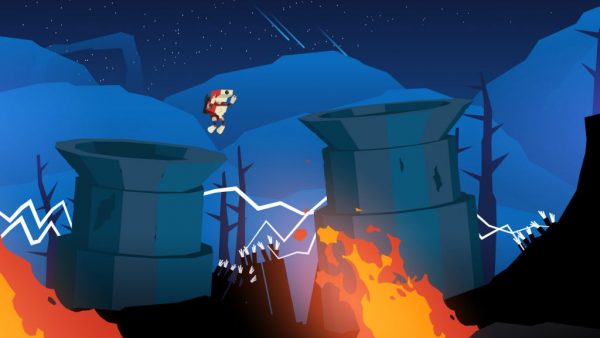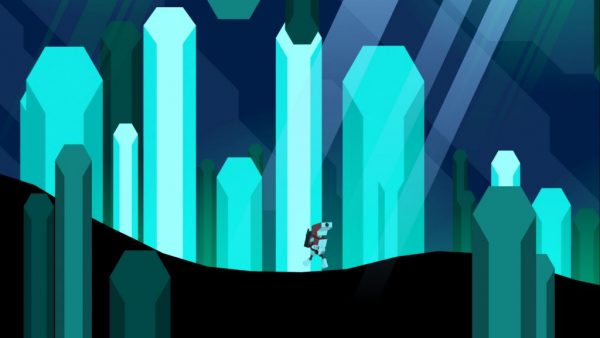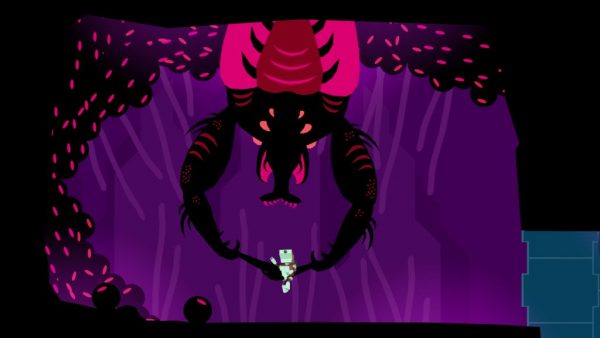Also On: PC, Xbox One
Publisher: Cococucumber
Developer: Cococucumber
Medium: Digital
Players: 1
Online: No
ESRB: E10+
A bit of a tangent before I get into Planet of the Eyes: I don’t think I’ve ever played a game that left me as angry as Actual Sunlight. It was designed to give players an idea of what it was like to be depressive, but as far as I was concerned, it felt like it glorified depression and suicide.
I mention this because Planet of the Eyes was written by the same person, Will O?Neill. There’s a much bigger team behind the game, obviously, but as the game’s writer, O’Neill’s voice is arguably the one that carries the most weight here.
And you know what? It turns out that he’s much more capable of thoughtful nuance than I would’ve expected given my previous exposure to his work.
I don’t know if it’s that he’s matured as a writer in the last few years, or if it’s because working as part of a larger team moderated his voice and made it easier to digest, or what, but Planet of the Eyes shows that, in the right context, his thoughtfulness can work pretty well.
This probably shouldn’t surprise me too much. After all, Planet of the Eyes is all about a robot who’s crash-landed on a hostile planet, where all manner of creature and environmental hazards are out to kill it. Along the way, the robot picks up recordings left behind by his creator, who talks about his feelings regarding dying alone so far from home. On their own the words may have come off as overly indulgent, but coupled with the retro-futuristic art style and its inobtrusive score, the whole thing comes together very nicely.
The game is also helped by its incredibly short length. If it dragged on for hours and hours and devolved into a collect-a-thon, the story would probably become a lot less engaging. Instead, Planet of the Eyes is short enough that you should have no problem in beating the whole game, Platinum included, in under two hours, which means there’s no time for its plot to go wildly off the rails.
As you might expect, the brevity means that the game doesn’t try to challenge you that much. You don’t fight the many monsters that inhabit the planet, but, instead, you get past them by solving environmental puzzles. While one or two of the puzzles took a few minutes to figure out, for the most part, they’re simple enough that you can pass one and get on to the next in no time at all.
In other words, Planet of the Eyes isn’t going to be the next game that you sink dozens and dozens of hours into. But, if you’re looking for a game with an easily-understood plot and some fantastic writing…well, your search should stop here for an hour or two.
Note: Cococucumber provided us with a Planet of the Eyes PS4 code for review purposes.




